Friedrich Dörmann
Not all noise is accounted equally: How differentially private learning benefits from large sampling rates
Oct 12, 2021
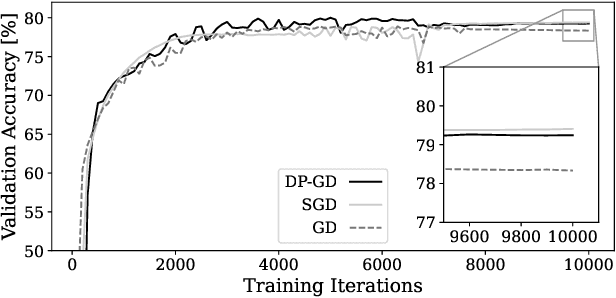
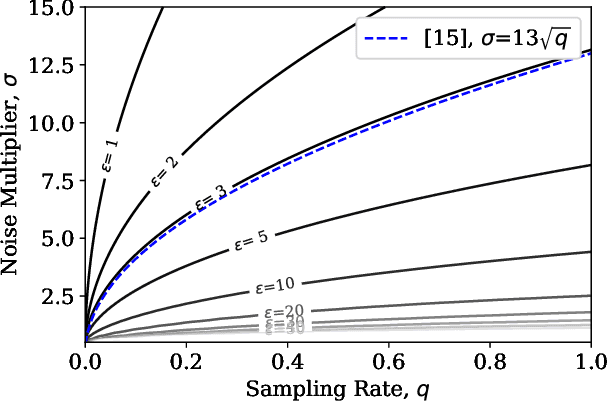
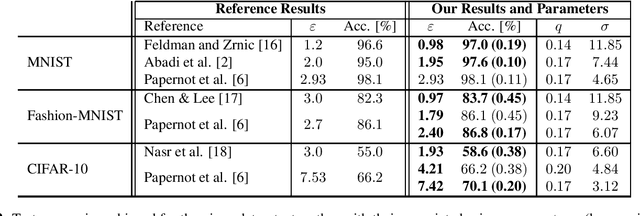
Abstract:Learning often involves sensitive data and as such, privacy preserving extensions to Stochastic Gradient Descent (SGD) and other machine learning algorithms have been developed using the definitions of Differential Privacy (DP). In differentially private SGD, the gradients computed at each training iteration are subject to two different types of noise. Firstly, inherent sampling noise arising from the use of minibatches. Secondly, additive Gaussian noise from the underlying mechanisms that introduce privacy. In this study, we show that these two types of noise are equivalent in their effect on the utility of private neural networks, however they are not accounted for equally in the privacy budget. Given this observation, we propose a training paradigm that shifts the proportions of noise towards less inherent and more additive noise, such that more of the overall noise can be accounted for in the privacy budget. With this paradigm, we are able to improve on the state-of-the-art in the privacy/utility tradeoff of private end-to-end CNNs.
Super-convergence and Differential Privacy: Training faster with better privacy guarantees
Mar 18, 2021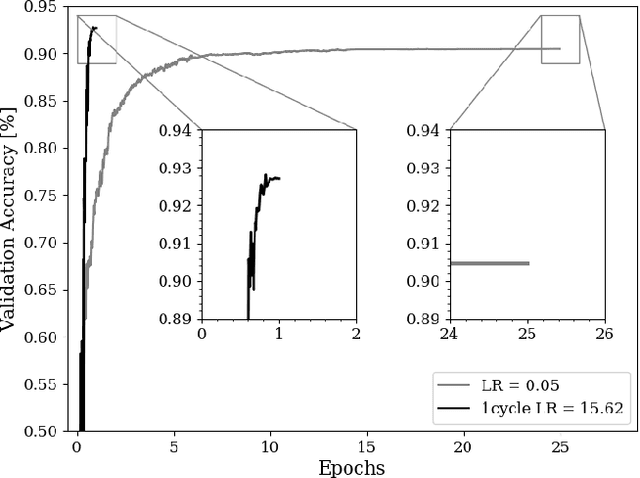
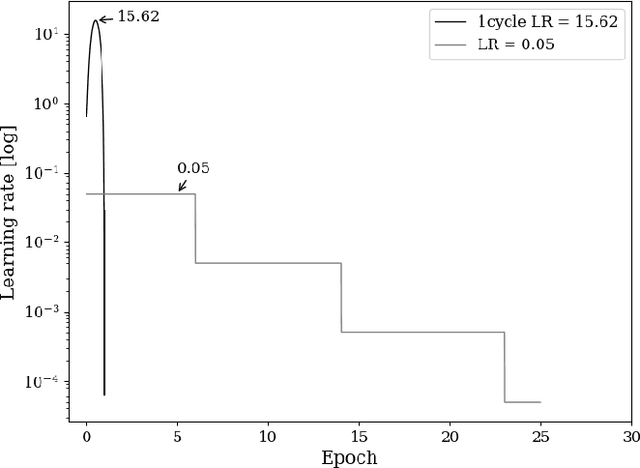
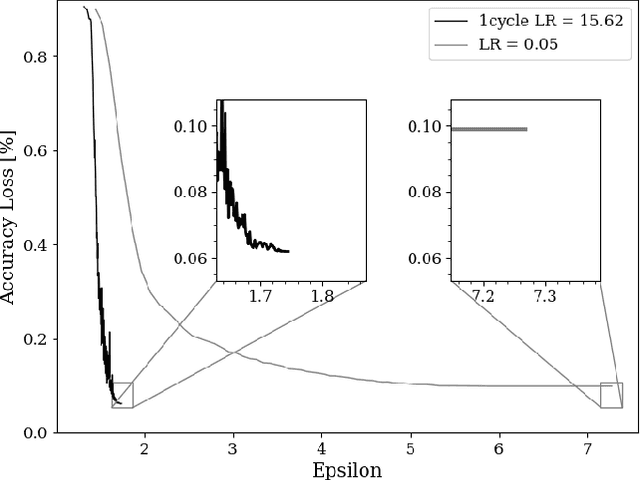
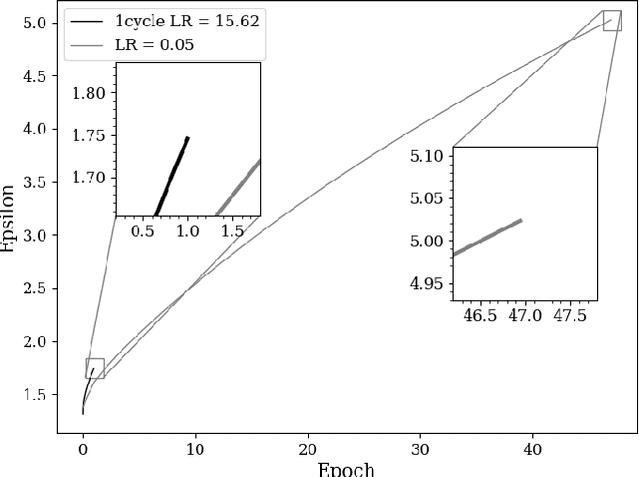
Abstract:The combination of deep neural networks and Differential Privacy has been of increasing interest in recent years, as it offers important data protection guarantees to the individuals of the training datasets used. However, using Differential Privacy in the training of neural networks comes with a set of shortcomings, like a decrease in validation accuracy and a significant increase in the use of resources and time in training. In this paper, we examine super-convergence as a way of greatly increasing training speed of differentially private neural networks, addressing the shortcoming of high training time and resource use. Super-convergence allows for acceleration in network training using very high learning rates, and has been shown to achieve models with high utility in orders of magnitude less training iterations than conventional ways. Experiments in this paper show that this order-of-magnitude speedup can also be seen when combining it with Differential Privacy, allowing for higher validation accuracies in much fewer training iterations compared to non-private, non-super convergent baseline models. Furthermore, super-convergence is shown to improve the privacy guarantees of private models.
 Add to Chrome
Add to Chrome Add to Firefox
Add to Firefox Add to Edge
Add to Edge